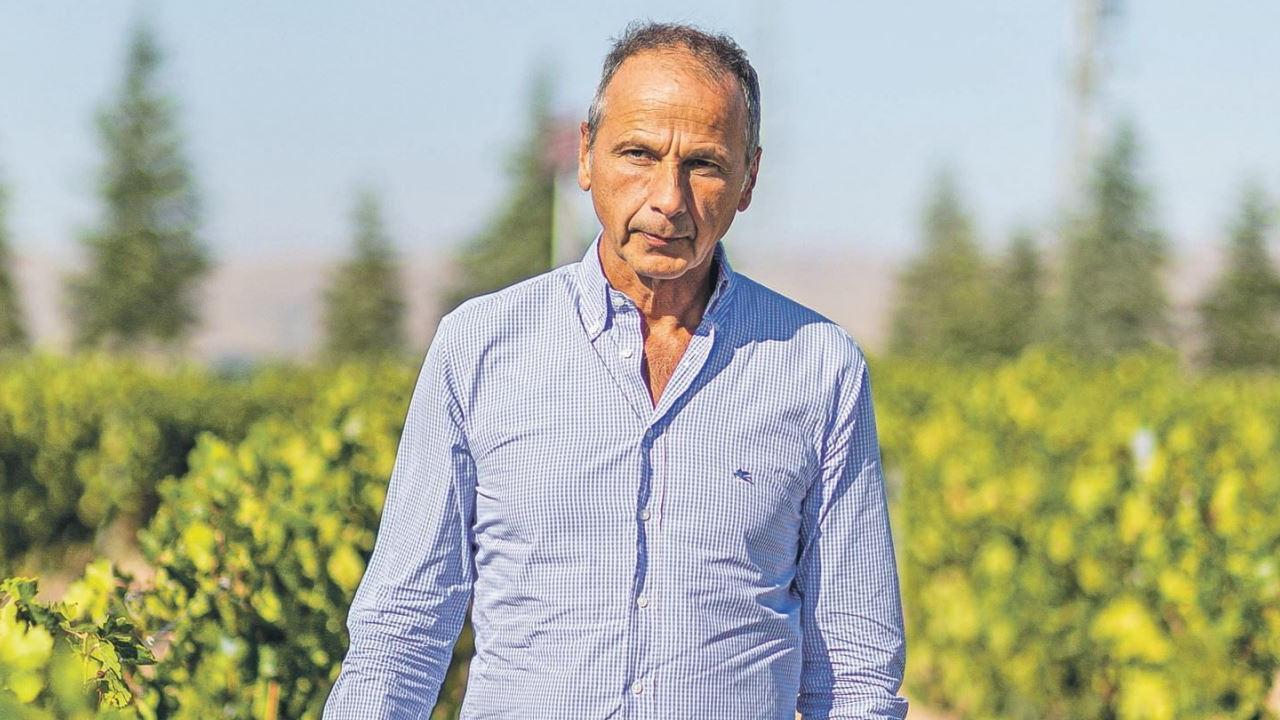WHAT IS TURKEY’S POSITION IN GLOBAL GRAPE PRODUCTION?
77.8 million tonnes of grapes are produced on an area of 6.9 million hectares (ha) in the world, according to the Food and Agriculture Organization’s (FAO) 2019 data. Turkey ranks 5th after Spain, France, China, and Italy with 431,000ha of cultivation and 6th after China, Italy, the U.S., Spain, and France at 4.1 million tonnes of grape production.
Of the 77.8 million tonnes of grape produced globally, 57% is used for wine while 36% and 7% are graded as table grapes and dried grapes, respectively, according to the International Organization of Vine and Wine’s (OIV) 2019 figures.
There is no concrete information in Turkey as it doesn’t have an exact registration and inventory system. 4.2 million tonnes of grapes are produced from around 430,000ha of vineyards, according to the inexact data. 52% and 37% of this is graded as table grapes and dried grapes, respectively, while 4% is used for wine and 6% is for fermented grape juice (sira). 79 million liters of wine and sparkling wine was produced in Turkey before the pandemic, including 76 million liters for the domestic market and three million for exports, according to the Tobacco and Alcohol Department of the Ministry of Agriculture and Forestry (TADB). Turkey imports around 2.5 million liters of wine and sparkling wine while its capacity totals 180 million liters. With the potential it has, Turkey is far from where it should be in the global rankings. Georgia, which ranks 20th in the world, has 2.3times higher figures than Turkey with 180 million liters. Moreover, vineyard areas are decreasing day by day in Turkey. This mainly stems from sales of low value-added table grapes and price instability.
WHAT’S THE GLOBAL MARKET SIZE OF TURKEY?
The global market size amounts to around EUR 30bn with France as the leader in the market with EUR 9bn. The top 10 countries with the highest market size after France are as follows:
Italy: EUR 5.3bn
Spain: EUR 2.6bn
Chile: EUR 1.8bn
Australia: EUR 1.4bn
U.S.: EUR 1.3bn
New Zealand: EUR 0.96bn
Germany: EUR 0.96bn
Argentine: EUR 0.73bn
Portugal: EUR 0.73bn
South Africa: EUR 0.72bn
Turkey’s market size stood at around EUR 10m before the pandemic. Turkish wines are offered as ethnic market products in the countries and markets where Turkish people live. They aren’t included in global gastronomy, with a few exceptions now. The situation is similar in te closed sales markets. Sales and promotions in tourism in the domestic market will really help Turkey to get involved in international gastronomy.
Each tourist visiting Turkey is an instrument for promotion. As the number of Turkish restaurants, which have international standards, increase abroad, Turkey will more easily promote its wines and cuisine and raise demand.
THE TURKISH WINE INDUSTRY IS EXPERIENCING HARDSHIPS DUE TO BANS IMPOSED BY THE GOVERNMENT AS IT MAINTAINS A STANCE AGAINST ALCOHOL. HOWEVER, NEW BOUTIQUE PRODUCERS HAVE ENTERED THE SECTOR OVER THE PAST DECADE. HOW DO YOU READ THIS?
The sector is experiencing serious difficulties in explaining itself and promoting products it manufactures as well as the online promotion ban. Turkish wines are banned in a globalizing world, while everyone, including locals and foreigners can access information, features and images of a wine produced abroad and make overseas sales. Even their online sales are banned in an environment where everything is digitalized as well as tracking, tax and age control can easily be monitored. Small and medium-sized viticulture and winemaking investments made with the support of modern Turkish people’s vision, courage, and love of country as well as involvement of new colors and new tastes are important for the sector to demonstrate its potential and richness in terms of taste and diversification in the international arena. Protection of international standards and formation of a structure to compete at these standards are critical.
EXPORTS OF THE SECTOR HAVEN’T EXCEEDED USD 10M FOR YEARS. THERE ARE COMPLAINTS ABOUT HIGH TAXES IN TURKEY. WHAT SHOULD THE SECTOR DO TO RAISE EXPORTS TO USD 50-100M?
The sector and the government should work jointly on this. A program to create synergy hasn’t been implemented so far. Ministries of Agriculture and Forestry, Tourism, and Trade should provide joint, coherent, and synchronized supports for producers. These ministries should work on an incentive project with manufacturers through a long-term program. Export development will also support promotion, tourism, and agriculture in Turkey. More tourists, higher value-added agriculture, more efficient employment in the agricultural sector, more productive lands, value added exports with higher price per kilogram, and more valuable country promotion will be achieved by doing so. Turkey can take a substantial share of the market and increase exports by at least 50-fold with the support of a long-term program.
THE MINISTRY OF AGRICULTURE AND FORESTRY IS PURSUEING SUPPORT POLICIES IN VARIOUS PRODUCTS. IT ALSO PROVIDES SUPPORT FOR SAPLINGS. ARE SUCH SUPPORTS DISCUSSED IN VITICULTURE?
Agricultural supports are short-term in Turkey. For instance, grape production is supported this year, while walnut or almond production will be supported next year. A grape sapling takes a minimum 8-10 years to reach the wine glass. This period should be considered in terms of supports. A minimum 10-year program and reliable forecasts are needed to go from sapling investment to vineyard, from vineyard to wine, from wine to glass. Supports for viticulture will pave the way for the evaluation of arid and infertile lands, promotion of water conservation in irrigated agriculture as vineyards needs less water than other products, prevention of erosion, creation of employment ten times higher compared to employment in wheat, and an increase in women’s employment.
TURKEY IMPLEMENTS THE TURQUALITY BRAND SUPPORT PROGRAM TO CREATE WORLD BRANDS. DOES THE TURKISH WINE INDUSTRY BENEFIT FROM TURQUALITY?
The goal in Turquality is to be the brand at international markets. Turquality is a program prepared generally for large corporate brands whose strategy is clear. Wine producers can’t reach these sizes. That’s why they benefit from smaller and collective incentives. Promotion bans in the domestic market forces activities to be carried out in foreign markets. Such bans sabotage the development of the sector. Beyond promotions, bans also prevent trade. A more secure, traceable system which zeroes out tax evasion can’t be implemented, and everyone loses.









